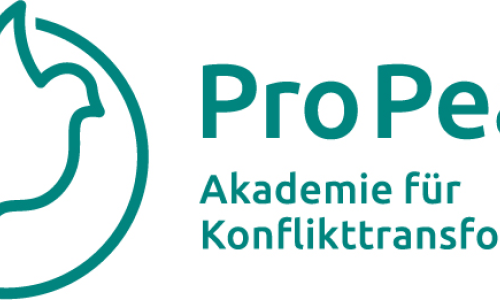Full-time Course in Peace and Conflict Work 2025
The 10-module course starts with an introduction week and ends with a wrap up week which will be facilitated by the course educational advisors.
The main modules are divided into three learning blocks with each block conveying a cluster of related knowledge and skills.
In between the different blocks there will be two course breaks of 4 days. During these breaks there will be no sessions, therefore, the participants must cover their own accommodation and food. We therefore encourage all participants to leave the venue to gain some distance and process what has been learned so far. It also offers the perfect opportunity to visit some places or persons around Germany or Europe.
Consequently, the overall structure of the course looks as follows:
Module 1 (5 days): Introduction
Block 1: Attitudes and Skills in Conflict Transformation
Module 2 (4 days): Steering Stakeholder Processes
Module 3 (5 days): Introduction to dialogue facilitation
Module 4 (4 days): Nonviolent action / Civil resistance advocacy and lobbying
Course Break: 01. - 04.04.25
Block 2: Peace Programming
Module 5 (6 days): Conflict Analysis
Module 6 (5 days): Designing Peace Projects
Course Break: 18. – 21.04.25
Block 3: Mainstreaming crosscutting themes
Module 7 (4 days): Conflict Sensitivity
Module 8 (4 days): Identity and Power
Module 9 (4 days): Environment, People and Conflict
Module 10 (5 days): Wrap up and Closing
The aim of this course is for you to acquire the appropriate skills and knowledge needed to work on the diverse and multi-faceted field of peace and conflict work. You will deepen your understanding of conflict dynamics, and their non-violent transformation, including but not limited to: clarifying the key concepts of civil conflict transformation, analyzing conflicts, designing peace projects, as well as gaining a deeper understanding of your role and attitude as a peace worker in this field.
The consolidation of your sense of self, awareness of own patterns, attitudes, behaviors, biases, needs and limits, as well as your understanding of group dynamics and the importance of communication, are core issues to the course, and are not only worked on through a theoretical input, but are consistently brought to the focus through self-reflection and group sharing.
The course utilizes the elicitive training model, where the learning journey is aimed at discovery and creation using your own experiences and knowledge as the main resource, and where the trainers are catalysts and facilitators rather than experts. Your learning also continues after the official sessions as you will be living together with the other participants throughout the whole course.
At the end of the intensive full-time course, the participants will have:
Examined their own motivations, attitudes and perspectives on peace work;
Practice the selected conflict transformations skills and identify ways and ideas how could they be implemented in their work settings;
Examined their own conflict settings as well as their own projects through the use of different lenses and frameworks offered in each module;
Developed project ideas or improve existing projects derived from the results of the conflict analysis
Identified approaches, frameworks, methods and tools they can realistically apply or adapt and identify ideas for its successful implementation
- Completed professional/vocational training
- Minimum of two years of work experience
- Experience working in groups with diverse perspectives and backgrounds
- Fluent written and spoken English
- Willingness to reflect on your own preconceptions and behaviour
- Willingness to engage in groups and learning processes
Lieu
Pour vous inscrire à ce cours, veuillez cliquer sur le bouton. S’inscrire maintenant
| Thèmes | |
| Langues | English |
| Évaluation | Certificate of Attendance |
| Public cible | |
| Méthodes | |
| N° de participants | 10 |
| Accréditation | |
| Certificat |
Si vous avez des questions sur ce cours, contactez-nous.
Pour envoyer un message, veuillez cliquer sur ce bouton Entrer en contact

